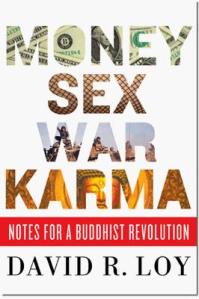Speaking of self anger.
I had a very profound moment last week. The fact of whether or not it was justified is irrelevant; it was there. And it totally, and I mean TOTALLY sucked. Based on this I would recommend that we eradicate self anger (I wish).
While my primary job is that of One City Blogger (again, I wish), I’ve been working part time for the past year as a tutor for an autistic child. Working with this child has been an education in the principles of patience and compassion, maybe as much as all my Buddhist studies combined. It has both worked in conjunction with my meditation practice, and sometimes it seems in opposition to my attempt to cultivate compassion. But really, especially lately, it’s been about redefining my view of what compassion is.
This little boy, I’ll call him “James,” had his birthday last week. As much as I tried to give James a fun, happy birthday, he was stuck in one of his crying tantrums for our whole session together. Even his favorite activities made him furious and distressed. He didn’t want to draw; he didn’t want to have ice cream; he didn’t want to go to the park. Autism presents such a challenge to anyone faced with it – an autistic person has a relationship with the world, objects, people, and their own emotions, that is difficult for the rest of us to relate to. Sensory information is muddled. Transitions from one activity to the next are perilous and strange. Connections between moments come and go. I wish I could tell you more about it, but I can’t, because I don’t know.
That day was, and hopefully will be, the only day I’ve ever cried at work.
As I reported to his mother what a difficult day it was for James, I felt an overwhelming rush of self anger – that I had somehow failed this boy. I felt so awful that he didn’t get to experience the kind of birthdays that I got to have when I was little – tons of my friends, lots of cake and a big party with balloons and a day that was all about me. And the understanding of all of these things that I had been given. James was given all these things, he was absolutely not neglected. His parents and his family are beautiful, kind, loving people, and give him everything they can and show so much devotion to helping him. The fact that James doesn’t grasp it; the fact that he had to do un-fun work on his birthday; the fact that he had to deal with a pushy woman who couldn’t possibly understand how he was feeling and yet still asked all these difficult things of him, were the thoughts that pushed the tears out.
I turned away in shame, angry at myself for being unprofessional. I ignored James’s mother’s warm reassurances that I was doing my job and that my work was helping James to overcome his obstacles. I only dwelled in the heated self anger that was bubbling somewhere behind my face, behind my eyes, around my throat, fluttering in my chest. I ruined his birthday, I thought.
This was no good at all. This would not do. I knew that I was doing the right thing in working with James on his birthday, but I needed to convince myself further. A few days later, at the ID Project retreat on Saturday, I worked with these feelings of self anger:
Why was I so angry with myself? Because I had failed.
What did I fail at? Making James happy.
Is making James happy my goal? No, it is not.
What is my goal for James? To help him function better.
How can I help him to function better? By giving him what he really needs.
What does James really need? To work on the things which scare him.
My work with James is about redefining what it means to be compassionate. While I would love for our sessions to make him happy, make him laugh, make him carefree, I know that they won’t always be this way. Real change happens in the uncomfortable, unfamiliar places, and sometimes the most compassionate thing you can do is to not make it easy. James will continue to cry, I will continue to have moments of self anger, but both James and I must push through the tears and the tantrums to find the places where we can learn. I can rely on my friends and teachers to give me tough love when I need it. For James, and for other autistic children, it will, likewise, take a teacher or a friend who isn’t afraid to truly be compassionate, to get them to a place of understanding.
Maybe I know James better than I thought.

